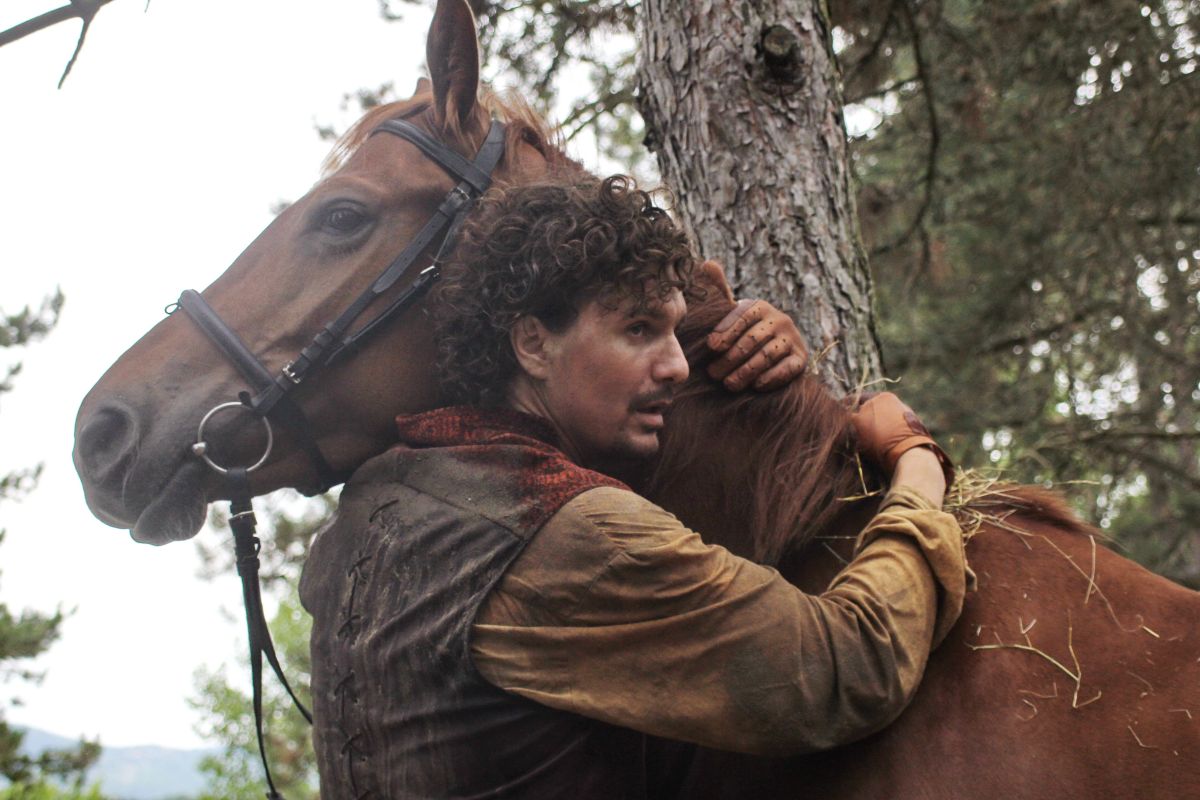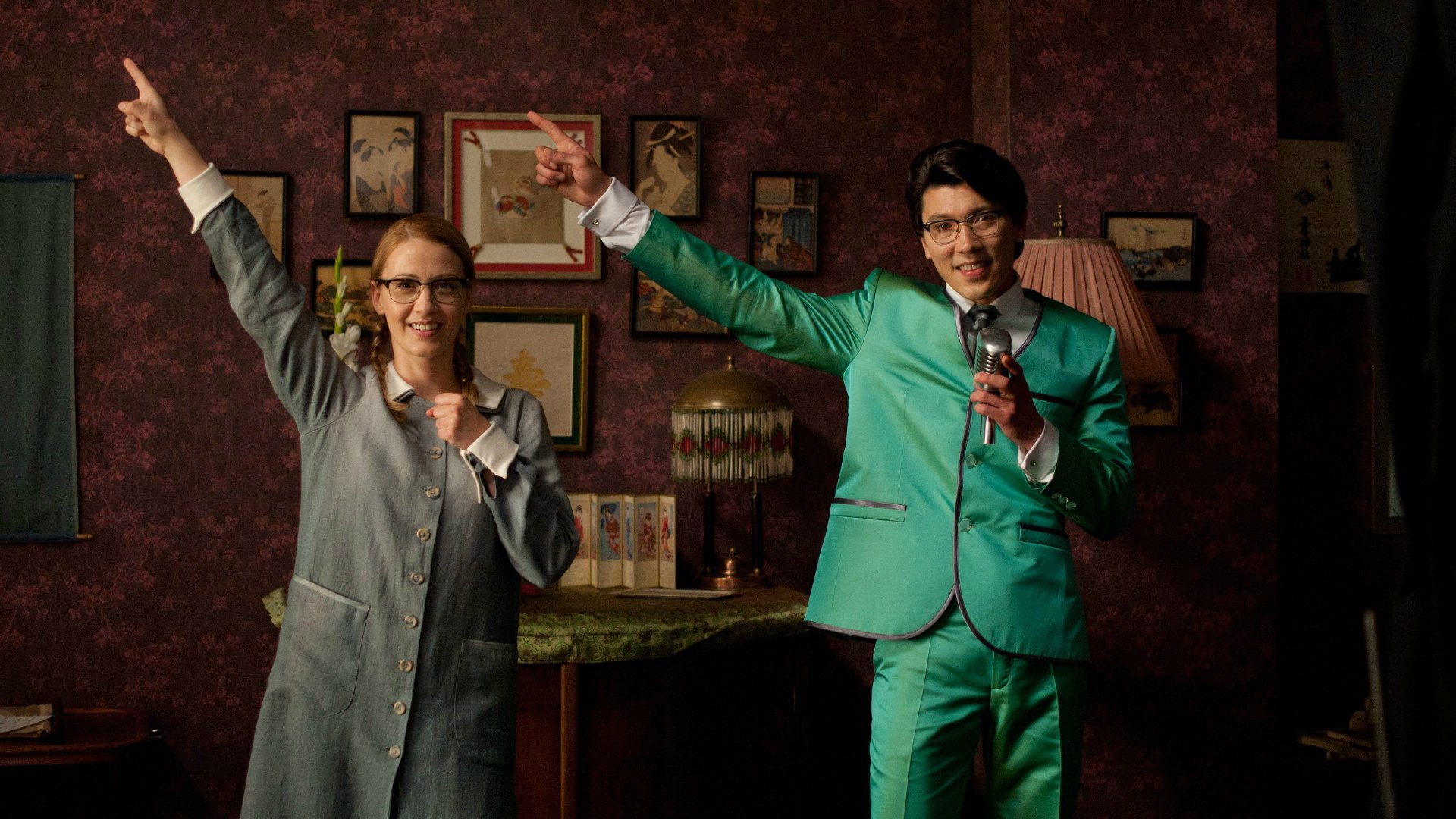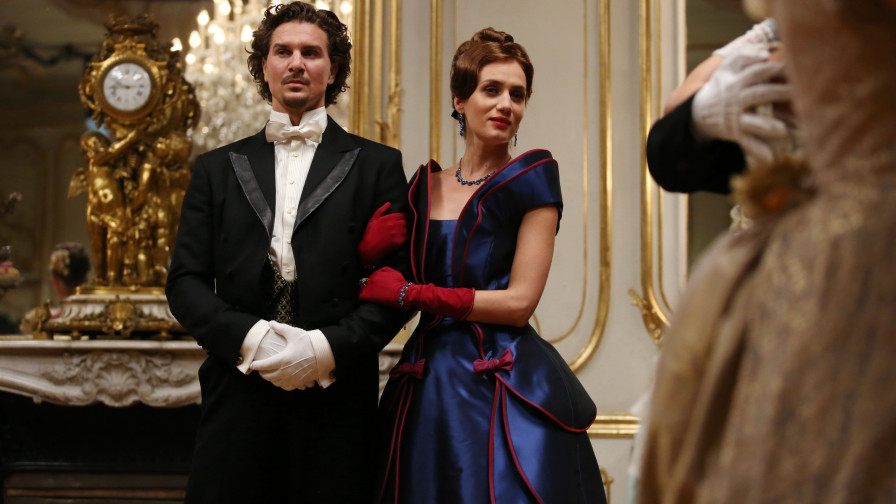Back in The Graces of The Audience
It was only in March that Gábor Herendi, the director of popular comedies ‘A Kind of America’ and ‘Hungarian Vagabond’, predicted that 2017 would bring about a turning point in Hungarian cinema. He felt that the movies coming out this year had the potential to tip the scale: Hungarian moviegoers who had been disappointed by one domestic movie after another would be lured back into cinemas.
Even though Herendi was definitely being optimistic, he remained cautious about predicting the number of audience of his own new film, Kincsem. But as it turns out, he was unnecessarily worried: at the time of writing this article, 'Kincsem' has already been seen by more than 350 000 people in Hungary, and it is still going strong in cinemas. This means that it has become the 10th most widely seen Hungarian movie in Hungary since the regime change in 1989. The last time a Hungarian movie was this successful was in 2008 when the sequel to ‘A Kind of America’ came out, also directed by Gábor Herendi; by the end of its run it had been seen by almost 450 000 people.
I for one would not have predicted ‘Kincsem’s’ success when it was first announced. A 19th-century period movie about a racehorse did not sound that appealing, even if it did have Ervin Nagy and Andrea Petrik in the lead roles. If recent years have taught us anything, it is that there are no real Hungarian movie stars: there is no one actor whose name automatically draws a large number of viewers to cinemas.

Kincsem by Gábor Herendi
I was also weary when filmmakers kept stressing that the film would have state-of-the-art horse racing scenes – I mean, we have all seen more Hollywood action movies than we would care to admit, and Hungarian movie budgets are not meant to compete on that level. So was I surprised by the high production value of this movie? Yes. Do I think that this is what is behind the movie’s success? No.
Of course it helps that the film is well made from a technical point of view, and it does not hurt either that it is exciting, romantic and funny without ever insulting the viewer’s intelligence. However, I am not entirely convinced that these are the most important factors that contributed to its success. Strangely enough, I think it has much more to do with the success of arthouse titles like László Nemes’ ‘Son of Saul’ and Ildikó Enyedi’s ‘On Body and Soul’.
Gábor Herendi was certainly right in saying that Hungarian cinemagoers had already some time ago turned away from Hungarian movies. While the last two decades may have produced Hungarian masterpieces such as Béla Tarr’s ‘Werckmeister Harmonies’ and ‘The Turin Horse’ and saw the emergence of a new generation of brilliant filmmakers, including Kornél Mundruczó, György Pálfi and Szabolcs Hajdu, this was only of interest to a small niche audience. At the same time, some Hungarian movies that were strictly made for entertainment purposes reached such a low point in terms of scriptwriting, directing and execution that mainstream audiences were no longer willing to pay for a ticket to see a Hungarian film.
Even though there were still, of course, great Hungarian movies being made, they were mostly lost in a sea of indifference, if not one of outright hatred among the Hungarian general audience. When the Hungarian National Film Fund was set up in 2011, it promised to earn back the trust of moviegoers and to fund movies that had the potential of becoming blockbusters; but they got off to a slow start. For a few years it seemed that even though the general quality of the movies being produced under the aegis of the film fund were slightly higher, viewers cared little.
However, things are starting to look a little brighter now. The years 2014 and 2015 brought about the success of quirky comedies like ‘For Some Inexplicable Reason’ by Gábor Reisz and ‘Liza the Fox-Fairy’ by Károly Ujj Mészáros. Even if people were not flocking to cinemas, word of mouth got around that these unique little gems were worth seeing.

Liza the Fox-Fairy by Károly Ujj Mészáros
I believe that ‘Son of Saul’ has had the biggest impact on the way Hungarian films are now being perceived by Hungarian audiences. After winning the Grand Prize of the Jury in Cannes, Nemes’ film was seen by about 100 000 people in Hungary in 2015 alone, and then, largely thanks to winning the Academy Award for Best Foreign Language Film, it was seen by almost a further 170 000 people in 2016, making it the most widely seen Hungarian movie of the year. These awards were just the launching pad, as word of mouth was again most probably the decisive factor. Because even though ‘Son of Saul’ is a hard-to-watch Holocaust movie and serious arthouse fare, which might not suit everyone, it touched people on both an emotional and an intellectual level and it started debates, and even those who did not like it walked away sensing that they had just seen something special; they were not disappointed.
And then this year we got lucky: we won a Golden Bear at the Berlinale and Best Live Action Short at the Academy Awards. Of course I do not mean to suggest that it was pure luck that these films received awards; Ildikó Enyedi’s ‘On Body and Soul’ (seen by approx. 63 000 people at the time of writing) is a great piece of filmmaking and Kristóf Deák’s short, ‘Sing’, is perfectly sweet. But it must be said that timing was fortunate. ‘Son of Saul’ was still fresh in Hungarian cinemagoers’ minds, and together with these new awards, these two films gave rise to the perception that Hungarian cinema was once again both interesting and worthwhile.
Which is why I think people took a chance on ‘Kincsem’ as well as on ‘Brazils’, a well-meaning comedy by Csaba M. Kiss and Gábor Rohonyi about a group of underprivileged Roma kids in rural Hungary who set their mind on winning the village’s football championship against all odds. ‘Brazils’, which came out at the beginning of April, has already been seen by more than 65 000 people. I can quite honestly say that if not the best, it might just be the most important film of the year because it carries a strongly positive, anti-racist message in a country fraught with racial tension and disillusionment.
Bori Bujdosó
